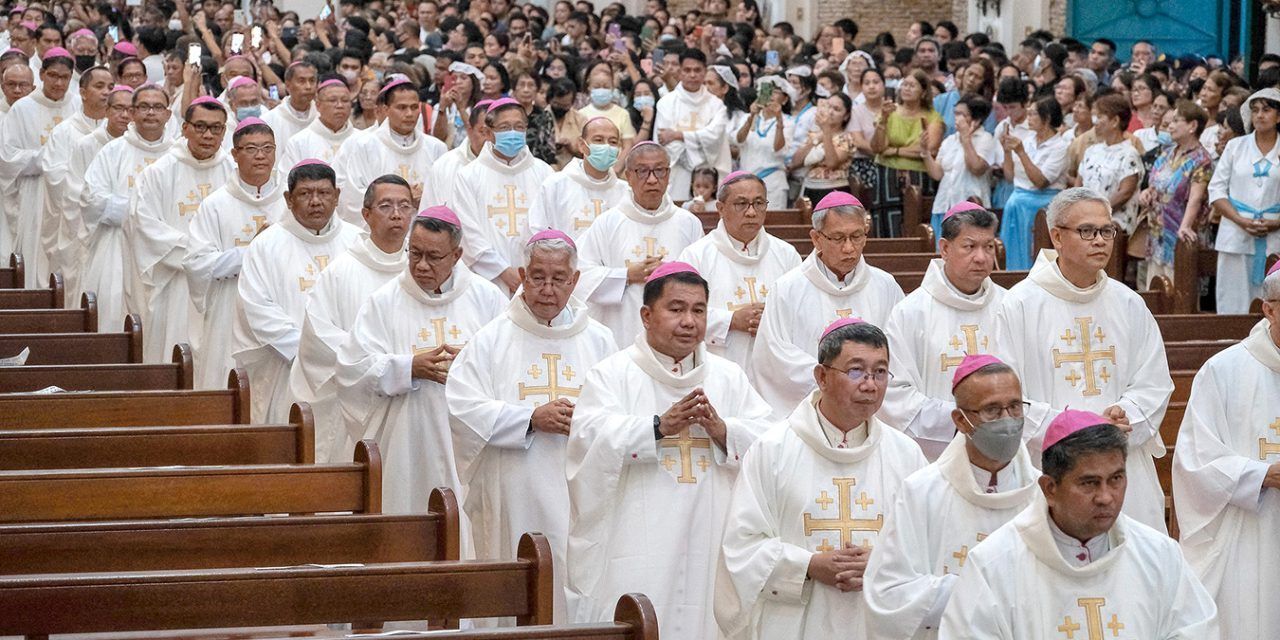
What is a Permanent Deacon? A Permanent Deacon is a man ordained to serve in the Catholic Church, assisting priests and bishops. Unlike transitional deacons, who become priests, permanent deacons remain in this role for life. They can perform baptisms, witness marriages, and conduct funerals. Deacons also preach, teach, and engage in various ministries. They often balance church duties with family and secular jobs. Permanent Deacons are vital in bridging the gap between clergy and laity, bringing the church's mission into everyday life. Their unique position allows them to serve communities in ways priests might not, enriching the church's outreach and support.
What is a Permanent Deacon?
A Permanent Deacon is a member of the clergy in the Catholic Church who serves in a unique role. Unlike transitional deacons, who are on their way to becoming priests, permanent deacons remain in this role for life. Here are some fascinating facts about permanent deacons.
-
Role in the Church: Permanent deacons assist priests during Mass, perform baptisms, witness marriages, and conduct funeral services. They play a crucial role in the liturgy and pastoral care.
-
Historical Roots: The role of deacons dates back to the early Church. The Acts of the Apostles mentions the appointment of seven men to assist the apostles, marking the beginning of the diaconate.
-
Ordination: Permanent deacons receive the sacrament of Holy Orders. This ordination grants them the grace to serve the Church in their unique capacity.
-
Married Life: Unlike priests, permanent deacons can be married. However, if a deacon's wife passes away, he is generally expected to remain celibate.
-
Education Requirements: Becoming a permanent deacon requires extensive theological education. Candidates often complete several years of study, including courses in scripture, theology, and pastoral care.
-
Age Requirement: Candidates for the permanent diaconate must be at least 35 years old. This ensures they have sufficient life experience to serve effectively.
-
Service to the Community: Permanent deacons often engage in various forms of community service. They might work in hospitals, prisons, or social service agencies, providing spiritual and practical support.
Responsibilities of a Permanent Deacon
Permanent deacons have a wide range of responsibilities that extend beyond the church walls. Their role is multifaceted, encompassing liturgical duties, pastoral care, and community service.
-
Preaching: Deacons are authorized to preach during Mass. They often deliver homilies, sharing insights from the scriptures and encouraging the congregation.
-
Teaching: Many deacons are involved in religious education. They might teach catechism classes, lead Bible studies, or provide instruction for those preparing for sacraments.
-
Pastoral Care: Deacons provide pastoral care to those in need. This can include visiting the sick, offering counseling, or supporting those going through difficult times.
-
Administrative Duties: In some parishes, deacons assist with administrative tasks. This can include managing parish programs, coordinating volunteers, or overseeing church finances.
-
Liturgical Functions: During Mass, deacons have specific liturgical roles. They might proclaim the Gospel, prepare the altar, or distribute Holy Communion.
Training and Formation
The path to becoming a permanent deacon involves rigorous training and formation. This process ensures that deacons are well-prepared for their diverse responsibilities.
-
Discernment Process: The journey begins with a period of discernment. Candidates spend time in prayer and reflection, seeking to understand if they are called to the diaconate.
-
Academic Studies: Candidates undertake academic studies in theology, scripture, and pastoral care. This education provides a solid foundation for their ministry.
-
Spiritual Formation: Spiritual formation is a key component of deacon training. Candidates participate in retreats, spiritual direction, and other activities to deepen their relationship with God.
-
Pastoral Training: Practical experience is also essential. Candidates engage in supervised pastoral work, gaining hands-on experience in various ministry settings.
-
Ongoing Formation: Even after ordination, deacons continue their formation. They participate in ongoing education and spiritual development to stay effective in their ministry.
Unique Aspects of the Permanent Diaconate
The permanent diaconate has several unique aspects that distinguish it from other forms of ministry. These characteristics highlight the special role that deacons play in the Church.
-
Bridge Between Clergy and Laity: Deacons often serve as a bridge between the clergy and the laity. Their unique position allows them to connect with parishioners in a special way.
-
Diverse Backgrounds: Permanent deacons come from diverse backgrounds. They might be teachers, doctors, engineers, or business professionals, bringing a wide range of experiences to their ministry.
-
Commitment to Service: The permanent diaconate is rooted in a commitment to service. Deacons dedicate their lives to serving God and others, embodying the Church's mission of love and compassion.
Final Thoughts on Permanent Deacons
Permanent deacons play a vital role in the church, bridging the gap between clergy and laity. Their unique position allows them to serve in various capacities, from assisting in liturgical functions to engaging in community outreach. These individuals often balance their religious duties with personal and professional lives, showcasing a deep commitment to their faith and community. Understanding the responsibilities and significance of permanent deacons helps appreciate their contributions to the church's mission. Whether you're considering becoming a deacon or simply curious about their role, knowing these facts provides valuable insight. Permanent deacons embody service, dedication, and faith, making them indispensable to the church's fabric. Their work often goes unnoticed, but their impact is profound, touching countless lives through their ministry. Recognizing their efforts enriches our understanding of the church's structure and the people who dedicate their lives to serving others.
Was this page helpful?
Our commitment to delivering trustworthy and engaging content is at the heart of what we do. Each fact on our site is contributed by real users like you, bringing a wealth of diverse insights and information. To ensure the highest standards of accuracy and reliability, our dedicated editors meticulously review each submission. This process guarantees that the facts we share are not only fascinating but also credible. Trust in our commitment to quality and authenticity as you explore and learn with us.


